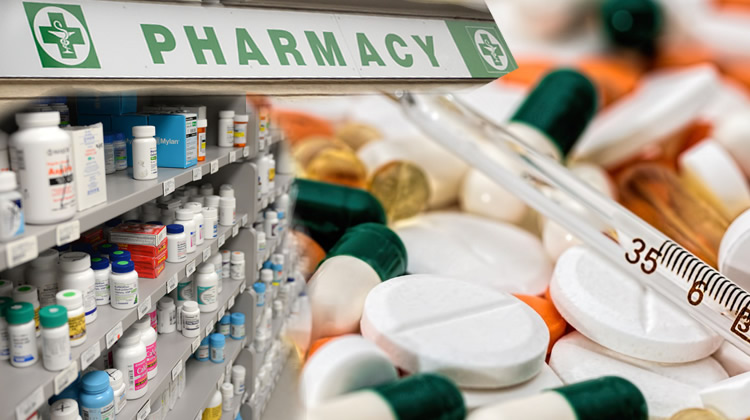
At least N3.06tn has been spent to import pharmaceutical products into Nigeria within the last six years, findings by The PUNCH reveal.
This is according to a report by the Raw Materials Research and Development Council, a Federal Government agency responsible for industrial raw materials growth, promotion and utilisation.
This is as Members of the Pharmaceutical Society of Nigeria have said that if nothing is done to stem the tide of over-reliance on imported pharmaceuticals, the country may be headed for a public health crisis.
According to the RMRDC report, Nigeria spent the sum of N126.1bn on pharmaceutical imports in 2016. In 2017, the figure reduced marginally to N118.9bn while 2018 saw an increase to N185.5bn.
Within the next four years, the figures would increase exponentially, with imports in 2019 hitting N520bn. In 2020, ostensibly due to the COVID-19 crisis, Nigeria spent N1tn to import pharmaceuticals. In 2021 and 2022 N544.4bn and N445.7bn were spent to import pharmaceutical products into Nigeria respectively.
Major pharmaceutical products imported during this time included Heparin and its salts, vaccines, toxins, wadding, gauze medicines of mixed and unmixed products for retail sale.
In contrast, Nigeria was only able to export products worth N3bn during the period in review, leaving the deficit balance of trade at N3.03tn.
According to the RMRDC report, a high propensity among Nigerian industries and businesses for consumption/utilisation of foreign raw materials and products accounts for one of the major challenges encouraging the importation of foreign products.
The Chairman of the Akwa Ibom State branch of PSN, Abasiama Uwatt, said that the continued scarcity of forex may lead to a public health crisis if decisive action is not taken to address the situation.
According to her, the prices of drugs have already doubled within the last year due to the forex crisis, and runaway inflation has plagued the economy.
She added that disruptions in the medicine supply chain had become a national security issue and that dependence on imported medicines had left a devastating mark on the local industry and the national economy.
Uwatt also raised the alarm, saying that a public health crisis is imminent as medicine security is not guaranteed for millions of Nigerians.
She said, “The threat to medicine security is at an all-time high. We have witnessed the exit of GSK from Nigeria after 51 years of their presence in the country. Despite our capacity to produce Active Pharmaceutical Ingredients, we are still heavily dependent on importation for supply.
Meanwhile, speaking exclusively with The PUNCH, the chairman of the communique drafting communique for PSN 2023 week, Mfonobong Okon blamed policy somersault on the part of the government for the continued reliance on imported drugs.
“The problem in Nigeria is policy. They are not usually implemented. There is policy somersault. Importation is easier than production. Any businessman that relies on the balance sheet will go for importation. But importation cannot generate employment like production. It can’t generate self-sufficiency. We should have our eyes on the bigger picture which is medicine security, not just what works in the short term,’’ he said.




